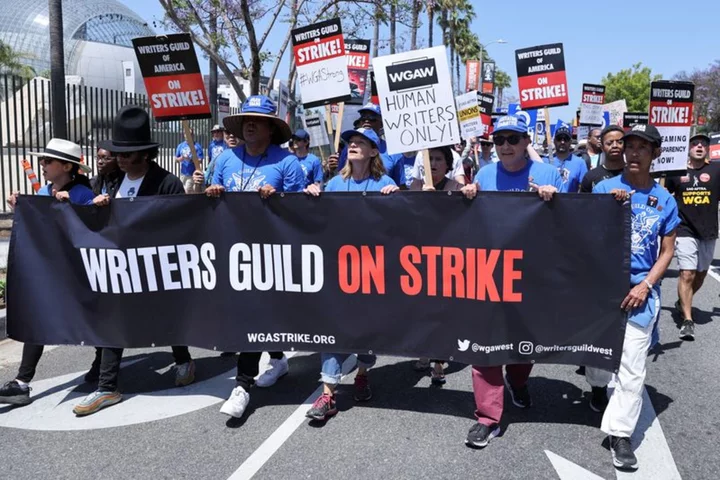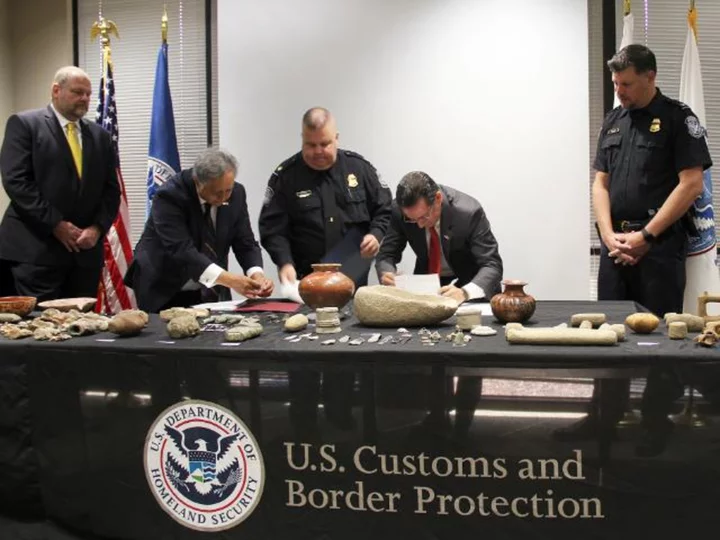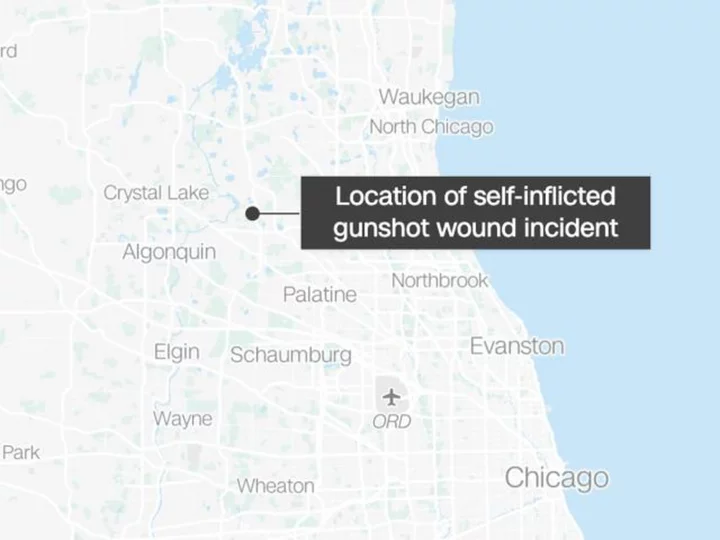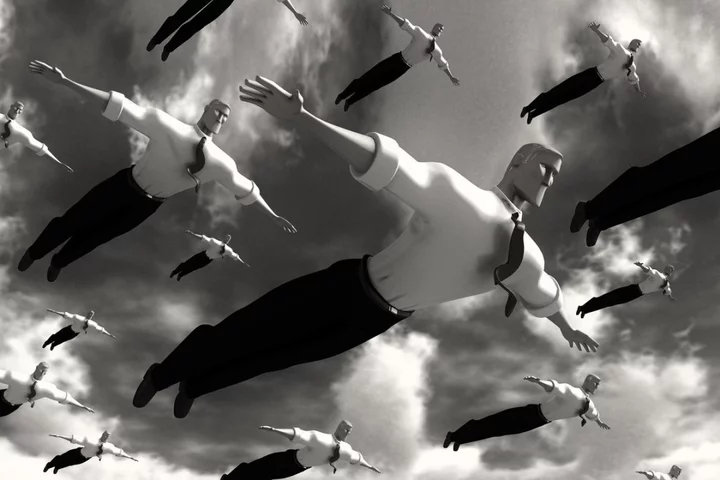By Lisa Richwine and Dawn Chmielewski
LOS ANGELES Before Hollywood writers walked off the job in early May, Pam Elyea's prop house History for Hire filled an average of 53 requests per week for everything from period-appropriate cameras and luggage to camping gear and snow globes.
Weekly orders this year now average 26 as the strike by the Writers Guild of America (WGA) halted many film and TV productions, Elyea said. She estimates the revenue of the company, which she runs with her husband, has dropped 60% and it is falling $100,000 short of meeting monthly expenses.
"Even though there is a strike going on, it doesn't stop my staff's rent. It certainly doesn't stop my rent. It doesn't stop our utilities," Elyea said, adding "things are just so much more expensive since the pandemic."
Small businesses in Los Angeles and beyond are taking a hit from the strike. Florists, caterers, costume suppliers and others have seen orders dwindle as many are still recovering from disruptions caused by COVID-19.
It is unclear how long the work stoppage will last. No new talks are scheduled between major Hollywood studios and the writers, who are seeking higher pay and guardrails around the use of artificial intelligence.
The strike's impact would be magnified if the SAG-AFTRA actors union also goes on strike when its contract expires on Friday.
One rough measure of the current toll is the number of permits issued for movie and TV filming in Los Angeles. That number has fallen 56% from a year ago, according to permitting organization FilmLA.
Typically, dozens of scripted television projects would be in production for the fall broadcast season. As of June 18, there were just three with permits to film in the city.
Economists say it is too early to measure the full economic toll.
But the 100-day WGA strike in 2007-08 resulted in the loss of 37,700 jobs in California and cost the state $2.1 billion in lost output, according to Kevin Klowden, chief global strategist for the Milken Institute. It took months for the impact to become clear, as restaurants, logistics companies and cleaning services cut staff.
That work stoppage tipped the state into the Great Recession of 2007 through 2009, and California took longer than the rest of the United States to rebound, Klowden said.
"It took a year for schedules to recover, for workers to recover," said Klowden.
This time, businesses may be more vulnerable.
"You've got people who have barely recovered from COVID," said Ross Garner, managing director in NFP's Entertainment Group, an insurance broker for rental houses and production and audio/visual companies. "They really don't have the reserves that they had four years ago, pre-COVID, to help them survive this potentially extended period."
Most of NFP's clients have laid off at least 35% of their staffs. One that rents sound stages cut its workforce by half, laying off custodians, stage managers and others.
CUTTING BACK INVENTORY
Sassy Craft Services, which provides food and drink to sets, used to book about eight jobs per month with productions for companies including Netflix and HBO, said owner Danni Sapp.
That has dropped to about three, Sapp said. She helps fill the gap with smaller jobs such as providing coffee for a store opening.
Sapp is now considering diversifying her income sources by becoming a pilates instructor.
"It's something I always wanted to do and now I have time for that, which is very different because normally I'm super busy," she said.
Some assistance is available. California's Work Sharing Program is designed to help companies avoid layoffs. An employer can reduce a worker's hours to four days a week, for example, and ask the state to temporarily cover the fifth.
Nonprofits also are helping. The Motion Picture and Television Fund, which aids workers across the entertainment industry, said it had received nearly 1,000 strike-related assistance requests from May through the third week of June. That is three times the normal number.
The strike is rippling to states such as New Mexico that have become popular filming locations.
The vintage Western clothing shop Kowboyz is a tourist destination in Santa Fe, earning a mention in Vogue magazine for its "rodeo-ready" apparel.
Owners Cristina and John Iverson said movies and television shows account for 10 to 15% of its revenue. It provided wardrobe for the series "Outer Range" and the "Waco" miniseries, where the costume designer memorably purchased 150 pairs of cowboy boots to outfit the show's FBI agents.
Actors and crew often shop in the store when they are not on set, providing more income.
"We are on the film industry's list of resources," said Cristina Iverson. "We're on their radar."
As productions in Santa Fe dried up during the strike, the owners tightened spending. John Iverson said the store has not been able to fully restock inventory since the pandemic disruptions. Iverson estimates Kowboyz's selection of cowboy boots is down to about 1,500 pairs, or about half its typical stock.
"It's been very hard for us to bring back what we used to have," said Cristina Iverson, noting the difficulty of re-establishing a supply chain of pickers who rummage flea markets for used and vintage items. "Now, there's the writers' strike, and we're losing the movies that have been so good to us."
History for Hire also has curbed purchases, Elyea said, and had to turn down a striking writer who called with the hope of earning some cash by selling her 1990s electronics.
"You're the reason I can't buy from you," Elyea said she told the writer. "She hadn't made the correlation that her actions had a repercussion in the community. We're all inter-related."
(Reporting by Lisa Richwine and Dawn Chmielewski; Additional reporting by Danielle Broadway and Rollo Ross; Editing by Mary Milliken and Sandra Maler)









